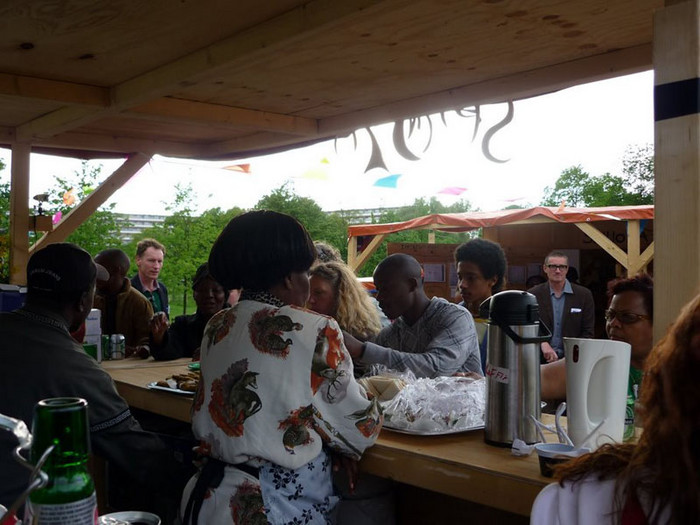FIGHT FOR ETERNITY 5TH LECTURE AT THE BIJLMER SPINOZA-FESTIVAL: MAY 6, 2009 BY MARCUS STEINWEG (ABSTRACT)

THE BIJLMER SPINOZA-FESTIVAL
AN ARTWORK BY THOMAS HIRSCHHORN
http://www.thebijlmerspinozafestival.nl/_home/home.html
AN ARTWORK BY THOMAS HIRSCHHORN
http://www.thebijlmerspinozafestival.nl/_home/home.html
That is the philosophical universalism which is misrecognized when it is not understood that the violence of this universalism opposes the violence of relativism as an assertion rather than as a proof or opinion or ideal — as an interrogation of the certainty of proofs and opinion. Philosophical universalism does not have anything in its hands. It attempts to grasp the ungraspable. It defends this lack of property as its only possession. The subject of propertylessness is the subject of self-acceleration. Self-acceleration is self-unbounding. The subject of self-acceleration comes into contact with innocence, with incommensurability and the unliveability of life. The unliveability of life means its contingent character, its ontological arbitrariness. Only in opening up toward this arbitrariness is the subject free. When deceleration accelerates the subject beyond the compulsions to accelerate in the sense of capitalist efficiency (that is, of a very uncourageous, very restricted concept of efficiency), then this deceleration could represent a form of self-acceleration of the subject that prevents it from bending to the demands of the economies of facts. That is the paradox in the experience of self-acceleration, that it uncovers for the subject its freedom and its unfreedom in equal measure. Because I am not free, I am free. In the space of my unfreedom, everything still remains to be done.
The subject’s self-affirmation demands courage, the courage to erect oneself amid real unfreedom. The question of life remains connected with the question of the liveability of life, with the subject’s openness toward the sphere of the unliveable in such a way that this openness, its affirmation can be regarded as the subject's life proper. The subject lives while it affirms its desubjectivization in continual self-affirmation. To be a subject means to lose oneself as a subject, over and over again, constantly. To be a subject includes living its life as a border contact with the dimension of the subject’s exterior, as a limiting experience of a life-subject touching the limits of its life, the infinite. The infinite (this too is one of Blanchot's as well as Deleuze's essential lessons) is not the theological dimension or religious, positive eternity. It marks the limit of simple positivity whether it be the presence of the factual and its correlative religiosity of facts, or the presence of a meaning beyond. To keep related to the infinite means to confront the incommensurability of life, its cruelty and innocence, its ontological indifference.1
